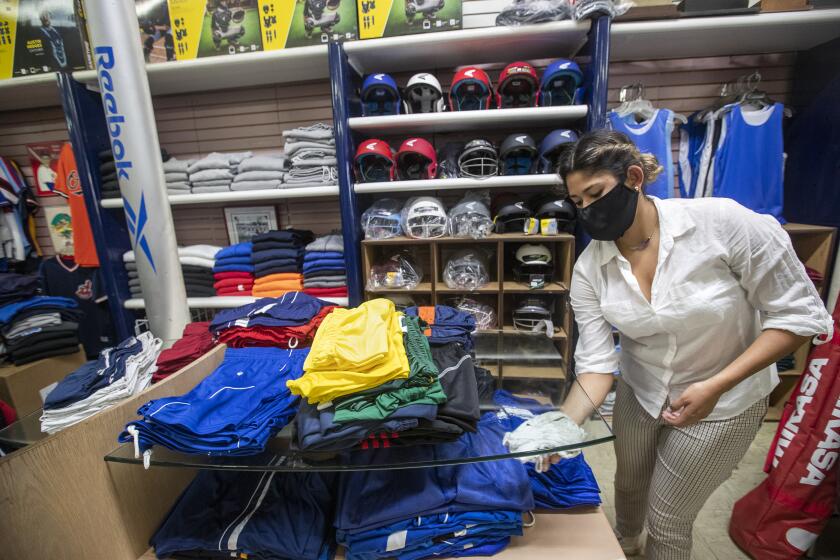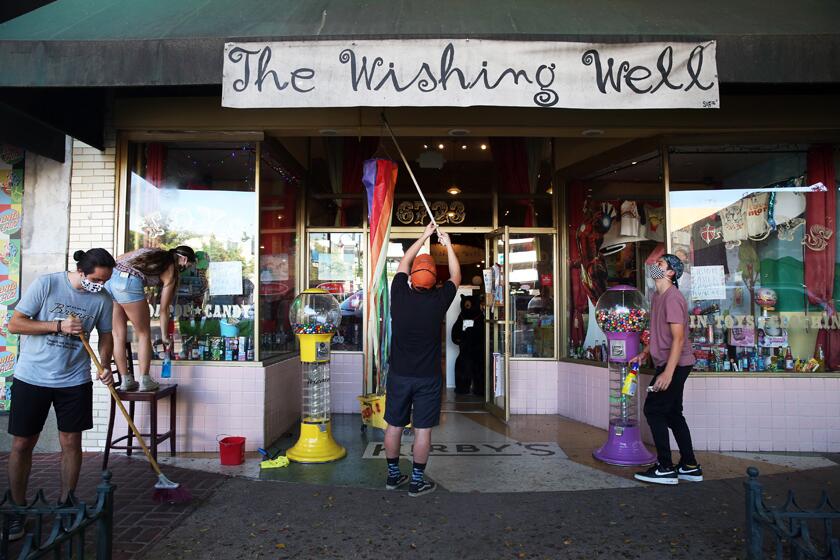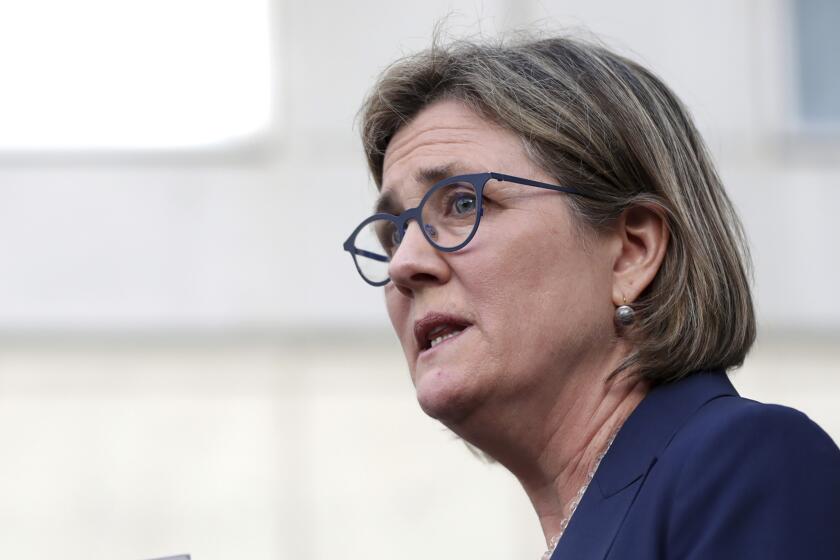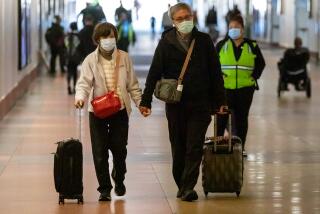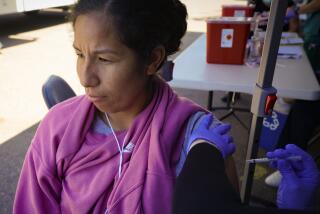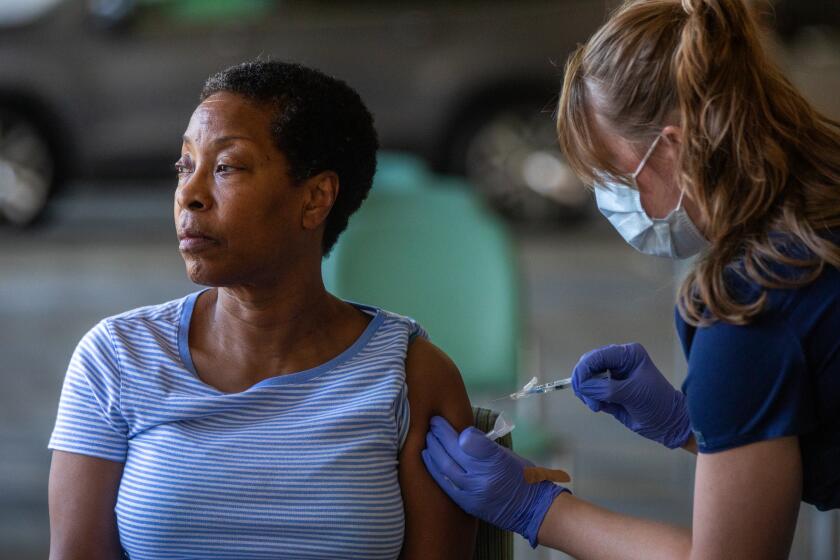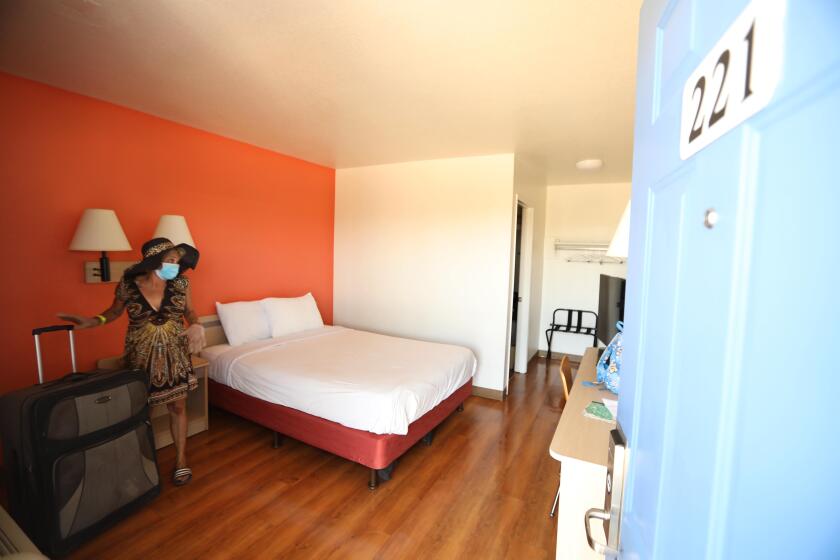Coronavirus cases spiked after these counties reopened. Now, officials are scaling back
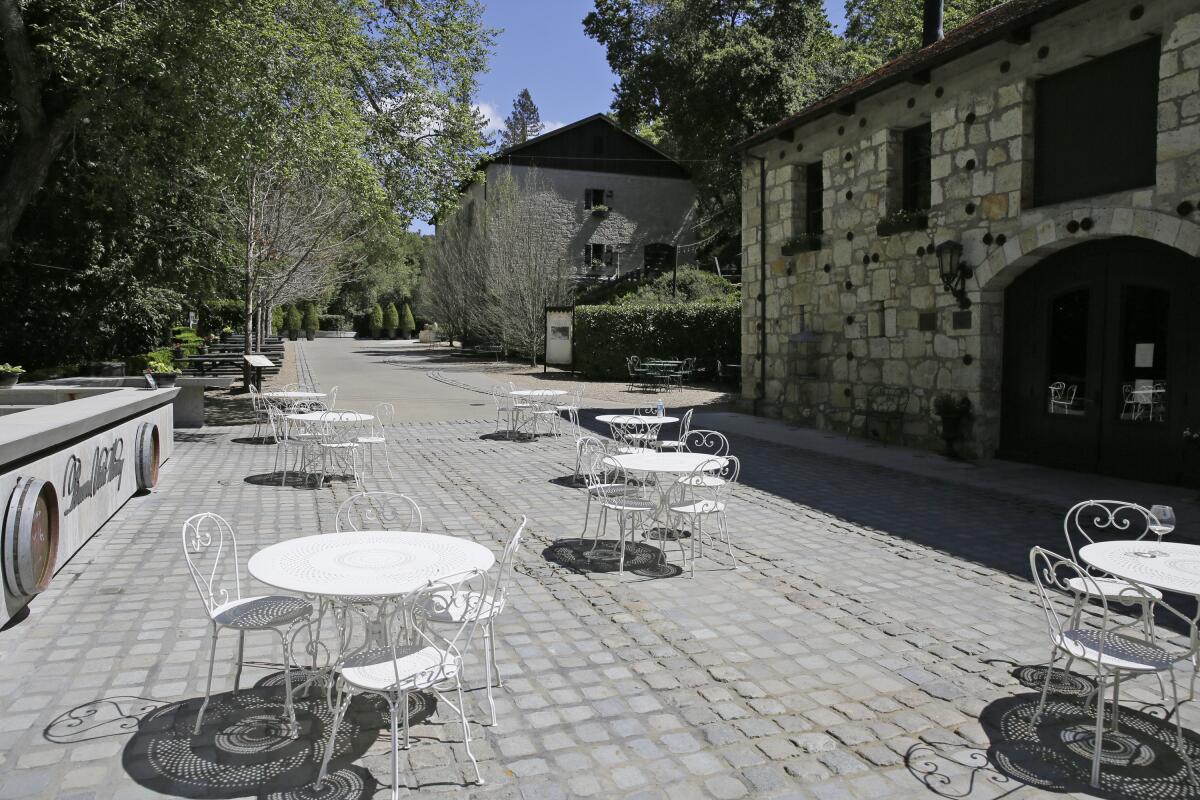
Sonoma County was one of the first regions in California to begin reopening after months of restrictions aimed at controlling the spread of the coronavirus.
Public health officials loosened constraints on construction, car sales and landscaping services in early May. A week later, they began allowing retail stores to reopen for curbside pickup and delivery. Last week, outdoor dining, summer camps, drive-in religious services and other ceremonies were allowed to resume.
Then, coronavirus cases began rising again, forcing officials to slow the county’s efforts to reopen.
Sonoma County has reported 203 new cases of the virus in the last 14 days, doubling its case rate in that time from 20 per 100,000 residents to 41 per 100,000, the county’s health officer, Dr. Sundari Mase, said.
On Wednesday, Mase reported nine new cases, bringing the total number of infections in Sonoma to 524. The county has reported four deaths since the pandemic began.
One area officials are particularly concerned about is the increase in instances of the virus being transmitted between people who have recently returned to work, Mase said.
“We’ve also seen, over the weekend, a few more hospitalizations that make us worried that we might be seeing more COVID in our vulnerable populations,” she said.
Nearly 300 miles away in Lassen County, officials are taking an even more hard-line approach after seeing the county’s first confirmed COVID-19 cases this week.
For months, the remote county of roughly 30,000 bordering Nevada had prided itself on being untouched by the coronavirus.
However, tests conducted last week confirmed that two people from the same household had been infected with the virus. The county began testing those who had been in contact with the pair and found that two other individuals had been infected, officials said this week.
In response, Lassen County health officials on Tuesday decided to walk back previously loosened restrictions on certain businesses and services.
Restaurants will be restricted to curbside pickup and delivery only. Salons will remain closed, and no in-person religious services will be permitted. In-store shopping will also not be allowed under the county’s latest rules.
Health officials have stressed that with the easing of stay-at-home orders comes the potential to further spread the coronavirus.
Dr. Kenneth Korver, the county’s public health officer, said officials were aware of the possibility that the virus could eventually come into the community, either from a resident traveling outside the region or from someone visiting.
“Unfortunately, this did happen, and we now have a serious problem,” Korver wrote in his most recent health order. “We need to contain the spread of the virus in Lassen County now.”
The move by the two counties comes after Gov. Gavin Newsom announced that large swaths of California could begin moving into the third stage of reopening.
While Sonoma County was given the green light by the state to reopen in-store retail, hair salons and places of worship under the state’s latest guidance, public health officials say the region will not amend its shelter-in-place order to include those services for now.
“We understand these measures are not easy or convenient,” Sonoma County Board of Supervisors Chair Susan Gorin said. “We look forward to a time when Sonoma County is fully open for business, recreation and social and religious gatherings.”
Peter Rumble, chief executive of the Santa Rosa Metro Chamber, told the Press Democrat that Mase’s decision to slow reopening has frustrated the business community, many of whom are eager and willing to do anything to resume economic activity in the area.
Conceding that more California counties are in a position to slowly reopen businesses, Gov. Gavin Newsom loosened his coronavirus benchmarks.
“I understand the decision was based on the data that she established — understand that aspect of it,” he told the newspaper. “At the same time, I understand that a lot of businesses have developed practices that will keep their workers safe and that will keep their clients and the public safe.”
The situation in Sonona and Lassen counties offers a cautionary tale as California reopens its economy. Experts have said coronavirus cases could easily spike without social distancing and other safety precautions, and health officials have said counties must examine new cases closely to watch for any upticks that might require tighter stay-at-home rules.
Smaller counties opened earlier than urban ones, where officials have been concerned about new outbreaks. Los Angeles County, which has seen more than 2,200 coronavirus deaths, has said it will take a more cautionary approach.
“There is a lot at stake as we reopen,” Los Angeles County Public Health Director Barbara Ferrer said Wednesday. “More people being around one another can result in more transmission of COVID-19 — just more cases and likely more hospitalizations and deaths. This is why it couldn’t be more important for us to take care of each other when we’re out of our homes.”
Dr. Sara Cody, health officer for Santa Clara County and a key architect of the nation’s first coronavirus shelter-in-place order, this week criticized California’s increasingly fast pace of lifting stay-at-home restrictions.
Cody expressed concerns that California risks a surge in cases if it reopens too many sectors of society too quickly. Reopening so fast, she said, means there isn’t enough time to implement new procedures to make reopened activities safe.
A key architect of the nation’s first coronavirus stay-at-home order says California’s fast pace of lifting restrictions “poses a very serious risk.”
More to Read
Start your day right
Sign up for Essential California for news, features and recommendations from the L.A. Times and beyond in your inbox six days a week.
You may occasionally receive promotional content from the Los Angeles Times.
